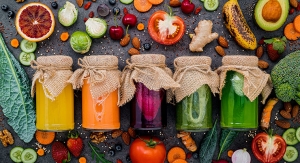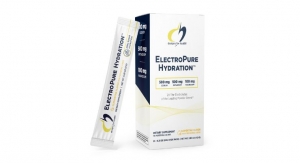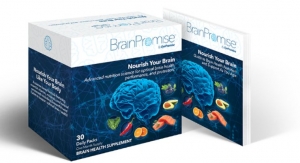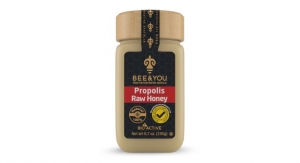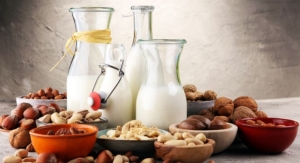By Mike Montemarano, Associate Editor10.03.22
Consumers still consider immune health a top reason for taking dietary supplements. In a hyper-competitive marketplace, brands are diversifying delivery formats, formulating with science-backed dietary ingredients, and emphasizing product quality.
Since the COVID-19 pandemic, people have been more likely to proactively support their immune systems all year, beyond traditional seasonal concern. They’re also noting how wellness issues like stress and sleep may affect immune function.
“In the past, consumers predominantly only reached for immune support products during the cold and flu season or on an as-needed basis,” said Melanie Bush, vice president of science and research at Artemis International. Now, the modern pandemic has turned immune system health into a year-round concern that is synonymous with overall wellness. While the fear of severe illness may have waned, the desire to supplement daily to maintain good immune health has stuck.”
Immune supplements have been in high demand, but the point of purchase appears to be shifting back toward brick-and-mortar retailers compared to online sales, according to Haleigh Resetar, corporate communications specialist at SPINS.
“Immune supplements are one of the outliers in the supplements space that has been seeing some decline due to the high demand that occurred in the early stages of the pandemic, which caused unsustainable growth,” she noted.
SPINS collects data on Amazon’s sales through its subsidiary, ClearCut Analytics, which it acquired this year. Immune health supplements on Amazon for the past 52 weeks ending Aug. 7 brought in $218.9 million in revenue, a 5% decline from the year before, said Resetar. She also noted a 2% increase in average retail price up to $20.01. Total units overall were down 7%.
Meanwhile, in the conventional and natural retail channels that SPINS tracks, immune supplements have grown 20.2%. Total revenue for conventional and natural enhanced channels for the 52 weeks ending Aug. 7 was $649.9 million.
“This growth, as opposed to the decline on Amazon, could be related to consumers shopping more in-store than they were during the pandemic and now picking up their immune supplement products during their regular grocery trips instead of waiting to get them delivered,” Resetar said.
When it comes to delivery formats of supplements marketed for immune health benefits, there have been different patterns of sales growth on Amazon and elsewhere.
On Amazon, the top forms (by growth) have been powders (45% growth, $10.79 million total revenue), sprays (16% growth, $2.61 million), softgels (13% growth, $2.63 million), liquid shots (9% growth, $3.09 million), and vegetable capsules (9% growth, $41.98 million)—the last of which holds about 19% market share.
In conventional and natural enhanced channels, products in the form of sprays also experienced the greatest growth rate in units sold (79.2%, $4.40 million total revenue), followed by lozenges (54.3%, $236.4 million), softgels (33.8%, $3.18 million), capsules (31.6%, $15.91 million), vegetable capsules (24.5%, $12.42 million), tinctures (22.3%, $6.45 million), and liquids (12.6%, $41.76 million).
There were also some notable differences between which ingredients generated the greatest revenue on Amazon versus other retail channels tracked by SPINS.
By total revenue, the top functional ingredients on Amazon were elderberry (-15%, $87.66 million), vitamin C (+3%, $45.43 million), mushrooms (+7%, $11.33 million), quercetin (+47%, $10.73 million), AHCC (-1%, $8.64 million), and echinacea (-7%, $4.56 million).
Meanwhile, in conventional and natural enhanced channels, the top ingredients by total revenue were horehound (+59.5%, $183.4 million), elderberry (+5.5%, $162.49 million), vitamin C (-4.6%, $162.4 million), echinacea (+23.9%, 31.30 million), menthol (+62.3%, $17.22 million), and bee propolis (+88.9%, $8.05 million).
“Some consumers are moving away from looking strictly at supplements for their immunity and are turning their attention to supplements that focus on sleep support, hydration, digestive health, and mood support, all of which can factor into overall immunity,” said Resetar. “Other categories outside of the VMS aisle have started to incorporate immunity ingredients and label claims,” she added, especially in refrigerated juices, kombucha and other functional beverages, and shelf-stable tea and ready-to-drink coffee.
In the supplements aisle, ingredient categories that are seeing growth in immune-related claims include probiotics and digestive aids, superfood and whole food supplements, and protein supplements or other meal replacements, according to Resetar.

“This makes it difficult to stand out in the market,” she said. “It also makes it harder for the consumer to pay attention to a specific brand and their message, as they are overwhelmed with options. The astute consumer must wade through dozens of options to find the few that have been clinically proven to work.”
As a result, she suggested companies think about the specific label claims they can make in different regions of the world during the product development process.
“In North America, no claims can be made for immune health, but consumers seem to be well aware that ingredients such as vitamin D, zinc, and selenium are solid choices for immunity,” Dhanraj said. “In Europe, there are approved health claims for immune support for these three ingredients. If the finished product manufacturer can refer to health claims or relevant data from a scientific study, it’s more convincing than ingredients that don’t have this kind of evidence or regulatory approval.”
Leslie Gallo, president of Artemis International, urged companies to proceed with caution with only structure-function, FDA-authorized health claims, or qualified health claims allowed in the U.S. “If clinical validation is being stated, brands need to be clear in their labeling whether the clinical study used an ingredient or the actual supplement. Most importantly, budget time and resources for legal review. In many ways, it’s far more costly to find out after the fact that you are not compliant.”
Also, given the high level of competition, “it’s important to know your product and understand your market,” Dhanraj said. “Not every manufacturer will want your product, and you probably don’t want to work with every manufacturer. There are finished product brands that can best highlight the unique features of your ingredient and it will serve you best to focus on their needs and work with those partners.”
Today’s market environment warrants “good science, excellent quality, affordable prices, and strong supply chains,” said Paul Altaffer, chief innovation officer at RFI Ingredients. “The rest of it is up to the genius of the marketing folks. While most people agree that they need to support and strengthen their immune systems, most people do not really understand what this means and follow the lead of brands to get what they think they need. The opportunity is in education and to have consumers understand that immune function is not just one thing, but that it is intertwined with almost everything related to good health.”
In a consumer survey commissioned by Kerry, 39% of people said they have used an immune health product within a six month window, according to John Quilter, vice president of global portfolio at Kerry.
“But, of course, the flip side of that is a highly competitive market, so you need to make sure that you’re meeting every consumer need you can,” said Quilter. “Consumers are more knowledgeable, more skeptical, and more likely to ask questions about the claims made for immune health products. The best way to make your product stand out from the crowd is the use of scientifically substantiated ingredients, and honest communication about its benefits. Kerry research has revealed the importance of transparency in healthy lifestyle products generally. Half (48%) of consumers in China, and 50% of those in Mexico, for example, said they wanted to see the benefits of a healthy lifestyle product explained on the packaging.”
Further, developing an all-purpose product that can meet several parameters of immune function, and be suitable for many consumers, serves as both a challenge and an opportunity, said Dhanraj.
“The challenge faced by the consumer is how to support their immune system without taking a fistful of supplements every day,” she said. “Also, how can they provide immune support for their entire family, including children? Consumers may be paying more attention to fortified foods to meet their needs.”
On that note, children-specific formulations can serve to fulfill one of the biggest unmet needs in the immunity market, said Kristin Wilhoyte, director of global product marketing, Deerland Probiotics and Enzymes. Many children have health regimens that include age-appropriate dietary supplements, she said, so products that are tested in children and available in an array of delivery formats are ideal.

“We saw an early push for elderberry, zinc, and other minerals, vitamins—especially C, D, and K—antioxidants, and nutritional oils,” Altaffer said. “All of these will continue to trend, but there are new opportunities like mushrooms and sea vegetables that offer great upside and incredible sustainability.”
Regardless of economic or market conditions, there is always room for innovative ingredient solutions that address pain points and deliver demonstrable, significantly better results, said Steve Fink, vice president of marketing at PLT Health Solutions. “Disruptive solutions thrive in disruptive times.”
In November 2020, PLT Health Solutions introduced Promunel Ultra Performance Propolis to the U.S. market. “Promunel offers a new level of sophistication and efficacy for an ingredient that has been used to support immune health and overall human health for over 5,000 years.”
The ingredient is standardized to six bioactive polyphenols, ensuring consistency, and has been subject to an unpublished clinical study in which 122 healthy adults with upper respiratory tract infections took a treatment of either Promunel sprays three times per day for three days, or a placebo. By the end of the intervention, 83% of subjects treated with the propolis had a remission of symptoms, while 72% of subjects in the placebo group had one symptom.
Quilter noted there’s growing awareness about the immune health benefits of beta-glucans. “A 2020 scientific review highlighted their immune health benefits in a variety of populations at risk for respiratory infections.1 It focused on their mechanism of action as immunomodulators, exploring the theory that they ‘train’ the body’s immune cells, triggering changes that help fight off pathogens. The research included in that review included a Chinese study that observed that children supplementing with Wellmune (Kerry’s proprietary baker’s yeast beta glucan immune health ingredient) were significantly healthier during the cold and flu season, and a randomized trial where researchers observed a significant decrease in post-marathon upper respiratory tract infection symptomatic days among runners who supplemented with Wellmune.”
Proprietary ingredients have a strong foothold in today’s market, according to Bush, given a high level of scrutiny on ingredient quality and because the structure-function claim “immune support” remains the primary consumer-facing message for the category.
“Consumers need to dig deeper into the quality and efficacy of these products,” she suggested. “Using branded ingredients that are substantiated with clinical studies makes it easier for formulators to reach consumers with this point of differentiation and helps to cultivate a more educated consumer base.”
For companies working with staple commodity ingredients, consider (or reconsider) where those ingredients are sourced from, suggested Dhanraj.
“There is a greater trend toward natural, plant-based, and sustainable ingredients, which is not specific to the immune market,” she added. “For example, it is possible to get a plant-based, sustainable vitamin D. Consumers are ever-more knowledgeable about their ingredients and want their purchases to fit their greater goals.”
On that note, Fink said that PLT has seen increased interest in its Earthlight Whole Food Vitamin D, as consumers begin to look at the sourcing of ingredients with a more discerning eye that favors traceability, clean labels, and sustainability.
“Earthlight is produced from mushrooms via a patented process by exposing these mushrooms to light. Much like the human body, mushrooms produce vitamin D when exposed to light. Earthlight is a whole food ingredient that is minimally processed without any extract solvents. It contains no carriers or binders, is non-GMO, and comes in an organic grade.”
Moreover, he added, “mushrooms are among the most earth-friendly, sustainable foods on the planet. To produce one pound of Earthlight, all that is required is 1.8 gallons of water and one KWH of electricity. One pound of the ingredient emits 0.7 pounds of CO2 equivalents. Producing 1 million pounds of the ingredient requires the use of just one acre of land.”

According to Gallo, being able to differentiate in this area is both the biggest challenge and opportunity in the market today. “With so many products on the shelves targeting immune benefits, the question boils down to ‘how can a brand stand out?’ We are seeing more innovation in the food and beverage categories than we see in supplements,” Gallos noted. “A big question is ‘what’s next after gummies?’”
Kerry’s 2021 survey offered insights into the categories where immune health is a particularly powerful purchase driver, said Quilter. “Of the global consumers who had made purchases in each category over the previous six months, 52% said they would be interested in fruit or vegetable juices if they provided immune health benefits, while other beverages such as sports nutrition drinks (45%) and enhanced waters (44%) also showed high potential. When it came to food, 40% of consumers who currently purchase breakfast cereal/granola said they would like to see immune health benefits in this category, as did 37% of those who purchased nutritional bars.”
Consumers want to address a range of health concerns, said Wilhoyte, “but grow weary of taking multiple supplements, even in fun and functional formats like shots, gummies, and stick packs. Foods and beverages that provide several wellness attributes, like support for immune function, satiety, and digestion can address that challenge.”
Beverages in particular represent an area ripe for innovation, according to Quilter, noting that younger consumers especially seek out healthier beverage options. “There are great opportunities to create functional beverages offering on-trend benefits like immune support that appeal to them. Wellmune is compatible with most processing conditions in beverage manufacturing. Categories where it can add immune support benefits include juices, smoothies, energy drinks, enhanced waters, and dairy drinks.”
Consumers are looking for beverages with more targeted benefits, rather than just ones that deliver on nutritional profiles, said Fink. As a result, PLT has been investing in making many of its condition-specific ingredients able to perform in drinkable formats. “Consumers want a higher level of functionality,” he said. “At PLT, our innovation partners have spent significant R&D resources turning our top-selling ingredients into forms that can be delivered in beverages. These are water-dispersible, neutral-tasting ingredients with a lot of formulation versatility.”
There is room for improvement when it comes to fine-tuning the more satisfying delivery platforms that run the show in the immune health category, Altaffer said. “While gummies are great for low-dose supplements, they require a great deal of sweetener and fillers to make them work. Eventually, the category will correct itself. But this means there are opportunities for disruption here as well.”
In speaking about Artemis’ ElderCraft European black elderberry ingredient, Gallo noted more development of liquid shots along with innovation in functional hard candy delivery, such as lozenges, lollipops, and just-add-water sachets.
“Functional chewing gum is an interesting innovation and a recent addition to the supplement shelves,” Gallo said. “The challenges will be retaining actives during the manufacturing process and the shelf life of actives, retaining color and flavor, and, of course, costs. Two-part capsules and tablets remain the most inexpensive options. Innovative deliveries can intrigue consumers and potentially offer a better user experience, but that comes at a cost. In order to be willing to swallow that extra expense, consumers need to have confidence that what they’re buying is worth their money.”
With the sensory impact of many botanical ingredients, Vaughn DuBow, global director of marketing for microbiome solutions at ADM, suggested they serve as a signaling mechanism to the user, alongside their health benefits. “Our wide range of high-quality botanical extracts, standardized plant extracts, and powders containing fruits and vegetables pair well with other functional ingredients to create tailored offerings that may offer added nutrition, as well as an enticing sensory experience.”
Consumers report room for improvement when it comes to supplement flavors, and it’s a pain point worth addressing, DuBow said. “Globally, 63% of supplement consumers believe supplement flavors could be improved, and 58% say it’s important for supplements to taste good. Brands that combine on-trend ingredients with colors and flavors that signal sensorial attributes associated with immune support, like citrus or mint, are likely to stand out in the aisles. For instance, citrus and berry flavors as well as bold orange, yellow, and red shades signal to consumers that the food, beverage, or supplement may contain desired functional ingredients that can support immune function.”
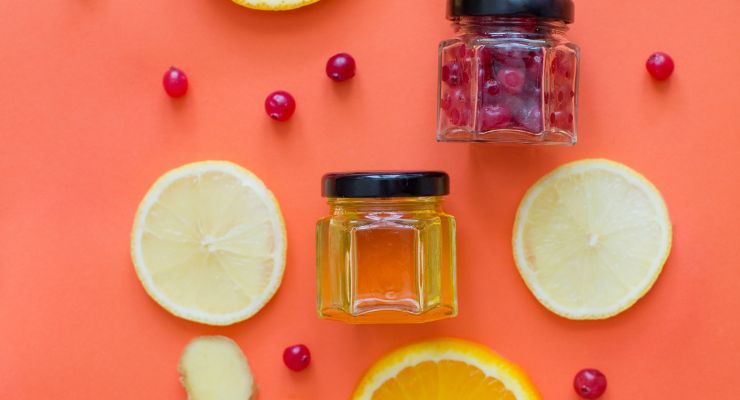
Fink also noted development of products that “deliver complementary benefits and that focus on overall wellbeing.” Mood and stress is a key area today, he added. “Happy people have more robust immune systems.”
Many ingredients may be clinically-backed for immune-modulating benefits as a secondary effect, and shouldn’t be left out of the discussion when developing an immune product, Fink added.
For example, “PLT recently announced a second clinical study on our ingredient AlvioLife, a patented composition of Boswellia serrata resin extract and Bengal quince fruit extracts (Aegle marmelos) which is targeted at respiratory health but is an ideal complement to immune health formulations. Subjects taking 200 mg/day of AlvioLife experienced statistically significant improvements in lung function, lung capacity, and aerobic exercise capacity. In addition to these results, the study showed reductions in reported upper respiratory tract symptoms and even improved psychological wellbeing. Positive changes in immune and inflammatory biomarkers were also shown.”
Being able to combine immune support with other health areas serves both convenience and cost-efficiency for the end consumer, said Bush. “For example, an immune support product that also helps soothe eye strain from excess screen usage and promotes sleep is an all-in-one that is very relevant in today’s world. And an immune product like European black elderberry that addresses immune support in both the short and long term makes for a versatile, worthwhile buy,” she said.
“Fifty-eight percent of global consumers perceive a connection between the function of the bacteria in the gut to wider aspects of wellbeing,” said DuBow. “Additionally, people are beginning to recognize that immune and metabolic functions are intertwined, and both are supported by a strong gut microbiome.”
The gut-immune axis, or how gut bacteria can influence immune function, continues to excite product developers in the probiotics category. “BC30, for example, is a leading spore-forming probiotic which has been shown to support immune health and can be used in a wide range of food and beverage products,” Quilter noted.
According to Wilhoyte, research indicates that “of the 87% of U.S. consumers interested in products with ingredients that may support immune function, 78% are specifically interested in probiotics.” She added that Deerland’s DE111 is “an innovative, spore-forming probiotic that retains functionality through challenging processing conditions that may otherwise damage conventional lactic acid bacteria probiotics. Numerous studies demonstrate DE111 supports various areas of wellness, including digestive health and immune function as well as support specifically for children’s health, including immune function and digestive support.”5-7
Meanwhile ADM, which acquired Deerland in late 2021, offers its BPL1 probiotic strain and a heat-treated counterpart. “As BPL1 HT undergoes a heat-treated process and contains non-viable microorganisms, it can withstand harsh formulation environments like high heat or pasteurization used for certain applications,” DuBow said. “Our probiotic ES1 is supported by preclinical and early clinical studies for markers associated with gut health. ES1 is also available in a heat-treated version. In human and in vitro trials, ES1 has shown potential to modulate immune responses and have positive effects on the gut barrier integrity.8-9 Furthermore, emerging and in vitro data suggest that our Lactobacillus rhamnosus CNCM I-4036 probiotic strain may support the innate immune system and colonize the gut, which future studies will evaluate further.”
“The focus on supply chain management has never been so important with all the disruptions we have had over the past few years,” Altaffer said. “These disruptions have forced everyone in the supply chain to concentrate on planning, sustainability, quality, and logistics.”
The global supply chain is still “quite shaky,” according to Dhanraj. “This is not the time to take risks with suppliers who don’t have their own manufacturing sites and who don’t have a solid, long history with their ingredients. Having to issue a recall due to off-spec or contaminated ingredients makes it not worth it to look at new, fly-by-night suppliers.”
Amid the challenges of global supply-chain turbulence, the immune health category will emerge stronger, according to Bush.
“While the pandemic gave way to a surge in immune health products, it also fueled plenty of opportunity for bad actors and irresponsible marketers,” Bush said. “As a result, deeper scrutiny was needed on the quality of ingredients in the supply chain, and on misbranding or overinflated claims relating to COVID-19. Thankfully, the industry itself has stepped up to help combat issues like adulteration of ingredients, such as in the case of elderberry. But with laser focus on the immune health market for several years, brands and consumers alike have had to pay closer attention to what is in their products and what is being stated.”
Since the COVID-19 pandemic, people have been more likely to proactively support their immune systems all year, beyond traditional seasonal concern. They’re also noting how wellness issues like stress and sleep may affect immune function.
“In the past, consumers predominantly only reached for immune support products during the cold and flu season or on an as-needed basis,” said Melanie Bush, vice president of science and research at Artemis International. Now, the modern pandemic has turned immune system health into a year-round concern that is synonymous with overall wellness. While the fear of severe illness may have waned, the desire to supplement daily to maintain good immune health has stuck.”
Immune supplements have been in high demand, but the point of purchase appears to be shifting back toward brick-and-mortar retailers compared to online sales, according to Haleigh Resetar, corporate communications specialist at SPINS.
“Immune supplements are one of the outliers in the supplements space that has been seeing some decline due to the high demand that occurred in the early stages of the pandemic, which caused unsustainable growth,” she noted.
SPINS collects data on Amazon’s sales through its subsidiary, ClearCut Analytics, which it acquired this year. Immune health supplements on Amazon for the past 52 weeks ending Aug. 7 brought in $218.9 million in revenue, a 5% decline from the year before, said Resetar. She also noted a 2% increase in average retail price up to $20.01. Total units overall were down 7%.
Meanwhile, in the conventional and natural retail channels that SPINS tracks, immune supplements have grown 20.2%. Total revenue for conventional and natural enhanced channels for the 52 weeks ending Aug. 7 was $649.9 million.
“This growth, as opposed to the decline on Amazon, could be related to consumers shopping more in-store than they were during the pandemic and now picking up their immune supplement products during their regular grocery trips instead of waiting to get them delivered,” Resetar said.
When it comes to delivery formats of supplements marketed for immune health benefits, there have been different patterns of sales growth on Amazon and elsewhere.
On Amazon, the top forms (by growth) have been powders (45% growth, $10.79 million total revenue), sprays (16% growth, $2.61 million), softgels (13% growth, $2.63 million), liquid shots (9% growth, $3.09 million), and vegetable capsules (9% growth, $41.98 million)—the last of which holds about 19% market share.
In conventional and natural enhanced channels, products in the form of sprays also experienced the greatest growth rate in units sold (79.2%, $4.40 million total revenue), followed by lozenges (54.3%, $236.4 million), softgels (33.8%, $3.18 million), capsules (31.6%, $15.91 million), vegetable capsules (24.5%, $12.42 million), tinctures (22.3%, $6.45 million), and liquids (12.6%, $41.76 million).
There were also some notable differences between which ingredients generated the greatest revenue on Amazon versus other retail channels tracked by SPINS.
By total revenue, the top functional ingredients on Amazon were elderberry (-15%, $87.66 million), vitamin C (+3%, $45.43 million), mushrooms (+7%, $11.33 million), quercetin (+47%, $10.73 million), AHCC (-1%, $8.64 million), and echinacea (-7%, $4.56 million).
Meanwhile, in conventional and natural enhanced channels, the top ingredients by total revenue were horehound (+59.5%, $183.4 million), elderberry (+5.5%, $162.49 million), vitamin C (-4.6%, $162.4 million), echinacea (+23.9%, 31.30 million), menthol (+62.3%, $17.22 million), and bee propolis (+88.9%, $8.05 million).
“Some consumers are moving away from looking strictly at supplements for their immunity and are turning their attention to supplements that focus on sleep support, hydration, digestive health, and mood support, all of which can factor into overall immunity,” said Resetar. “Other categories outside of the VMS aisle have started to incorporate immunity ingredients and label claims,” she added, especially in refrigerated juices, kombucha and other functional beverages, and shelf-stable tea and ready-to-drink coffee.
In the supplements aisle, ingredient categories that are seeing growth in immune-related claims include probiotics and digestive aids, superfood and whole food supplements, and protein supplements or other meal replacements, according to Resetar.

Challenges and Opportunities
The global market has been “inundated” with immune supplements since the emergence of COVID-19, according to Karen Dhanraj, technical marketing and sales manager at Lallemand Health Ingredients.“This makes it difficult to stand out in the market,” she said. “It also makes it harder for the consumer to pay attention to a specific brand and their message, as they are overwhelmed with options. The astute consumer must wade through dozens of options to find the few that have been clinically proven to work.”
As a result, she suggested companies think about the specific label claims they can make in different regions of the world during the product development process.
“In North America, no claims can be made for immune health, but consumers seem to be well aware that ingredients such as vitamin D, zinc, and selenium are solid choices for immunity,” Dhanraj said. “In Europe, there are approved health claims for immune support for these three ingredients. If the finished product manufacturer can refer to health claims or relevant data from a scientific study, it’s more convincing than ingredients that don’t have this kind of evidence or regulatory approval.”
Leslie Gallo, president of Artemis International, urged companies to proceed with caution with only structure-function, FDA-authorized health claims, or qualified health claims allowed in the U.S. “If clinical validation is being stated, brands need to be clear in their labeling whether the clinical study used an ingredient or the actual supplement. Most importantly, budget time and resources for legal review. In many ways, it’s far more costly to find out after the fact that you are not compliant.”
Also, given the high level of competition, “it’s important to know your product and understand your market,” Dhanraj said. “Not every manufacturer will want your product, and you probably don’t want to work with every manufacturer. There are finished product brands that can best highlight the unique features of your ingredient and it will serve you best to focus on their needs and work with those partners.”
Today’s market environment warrants “good science, excellent quality, affordable prices, and strong supply chains,” said Paul Altaffer, chief innovation officer at RFI Ingredients. “The rest of it is up to the genius of the marketing folks. While most people agree that they need to support and strengthen their immune systems, most people do not really understand what this means and follow the lead of brands to get what they think they need. The opportunity is in education and to have consumers understand that immune function is not just one thing, but that it is intertwined with almost everything related to good health.”
In a consumer survey commissioned by Kerry, 39% of people said they have used an immune health product within a six month window, according to John Quilter, vice president of global portfolio at Kerry.
“But, of course, the flip side of that is a highly competitive market, so you need to make sure that you’re meeting every consumer need you can,” said Quilter. “Consumers are more knowledgeable, more skeptical, and more likely to ask questions about the claims made for immune health products. The best way to make your product stand out from the crowd is the use of scientifically substantiated ingredients, and honest communication about its benefits. Kerry research has revealed the importance of transparency in healthy lifestyle products generally. Half (48%) of consumers in China, and 50% of those in Mexico, for example, said they wanted to see the benefits of a healthy lifestyle product explained on the packaging.”
Further, developing an all-purpose product that can meet several parameters of immune function, and be suitable for many consumers, serves as both a challenge and an opportunity, said Dhanraj.
“The challenge faced by the consumer is how to support their immune system without taking a fistful of supplements every day,” she said. “Also, how can they provide immune support for their entire family, including children? Consumers may be paying more attention to fortified foods to meet their needs.”
On that note, children-specific formulations can serve to fulfill one of the biggest unmet needs in the immunity market, said Kristin Wilhoyte, director of global product marketing, Deerland Probiotics and Enzymes. Many children have health regimens that include age-appropriate dietary supplements, she said, so products that are tested in children and available in an array of delivery formats are ideal.

Prime Time for Novel Ingredients
While the momentum behind staple immune ingredients won’t be going anywhere soon, there is a broader window than before to shake things up and diversify, said Altaffer, especially when it comes to novel or lesser-known ingredients, or proprietary products for which there are no analogs.“We saw an early push for elderberry, zinc, and other minerals, vitamins—especially C, D, and K—antioxidants, and nutritional oils,” Altaffer said. “All of these will continue to trend, but there are new opportunities like mushrooms and sea vegetables that offer great upside and incredible sustainability.”
Regardless of economic or market conditions, there is always room for innovative ingredient solutions that address pain points and deliver demonstrable, significantly better results, said Steve Fink, vice president of marketing at PLT Health Solutions. “Disruptive solutions thrive in disruptive times.”
In November 2020, PLT Health Solutions introduced Promunel Ultra Performance Propolis to the U.S. market. “Promunel offers a new level of sophistication and efficacy for an ingredient that has been used to support immune health and overall human health for over 5,000 years.”
The ingredient is standardized to six bioactive polyphenols, ensuring consistency, and has been subject to an unpublished clinical study in which 122 healthy adults with upper respiratory tract infections took a treatment of either Promunel sprays three times per day for three days, or a placebo. By the end of the intervention, 83% of subjects treated with the propolis had a remission of symptoms, while 72% of subjects in the placebo group had one symptom.
Quilter noted there’s growing awareness about the immune health benefits of beta-glucans. “A 2020 scientific review highlighted their immune health benefits in a variety of populations at risk for respiratory infections.1 It focused on their mechanism of action as immunomodulators, exploring the theory that they ‘train’ the body’s immune cells, triggering changes that help fight off pathogens. The research included in that review included a Chinese study that observed that children supplementing with Wellmune (Kerry’s proprietary baker’s yeast beta glucan immune health ingredient) were significantly healthier during the cold and flu season, and a randomized trial where researchers observed a significant decrease in post-marathon upper respiratory tract infection symptomatic days among runners who supplemented with Wellmune.”
Proprietary ingredients have a strong foothold in today’s market, according to Bush, given a high level of scrutiny on ingredient quality and because the structure-function claim “immune support” remains the primary consumer-facing message for the category.
“Consumers need to dig deeper into the quality and efficacy of these products,” she suggested. “Using branded ingredients that are substantiated with clinical studies makes it easier for formulators to reach consumers with this point of differentiation and helps to cultivate a more educated consumer base.”
For companies working with staple commodity ingredients, consider (or reconsider) where those ingredients are sourced from, suggested Dhanraj.
“There is a greater trend toward natural, plant-based, and sustainable ingredients, which is not specific to the immune market,” she added. “For example, it is possible to get a plant-based, sustainable vitamin D. Consumers are ever-more knowledgeable about their ingredients and want their purchases to fit their greater goals.”
On that note, Fink said that PLT has seen increased interest in its Earthlight Whole Food Vitamin D, as consumers begin to look at the sourcing of ingredients with a more discerning eye that favors traceability, clean labels, and sustainability.
“Earthlight is produced from mushrooms via a patented process by exposing these mushrooms to light. Much like the human body, mushrooms produce vitamin D when exposed to light. Earthlight is a whole food ingredient that is minimally processed without any extract solvents. It contains no carriers or binders, is non-GMO, and comes in an organic grade.”
Moreover, he added, “mushrooms are among the most earth-friendly, sustainable foods on the planet. To produce one pound of Earthlight, all that is required is 1.8 gallons of water and one KWH of electricity. One pound of the ingredient emits 0.7 pounds of CO2 equivalents. Producing 1 million pounds of the ingredient requires the use of just one acre of land.”

Food As Medicine
The lines between food and supplement delivery formats are blurring, opening up opportunities for ingredients that can withstand a variety of processing conditions and long shelf life while still delivering on efficacy.According to Gallo, being able to differentiate in this area is both the biggest challenge and opportunity in the market today. “With so many products on the shelves targeting immune benefits, the question boils down to ‘how can a brand stand out?’ We are seeing more innovation in the food and beverage categories than we see in supplements,” Gallos noted. “A big question is ‘what’s next after gummies?’”
Kerry’s 2021 survey offered insights into the categories where immune health is a particularly powerful purchase driver, said Quilter. “Of the global consumers who had made purchases in each category over the previous six months, 52% said they would be interested in fruit or vegetable juices if they provided immune health benefits, while other beverages such as sports nutrition drinks (45%) and enhanced waters (44%) also showed high potential. When it came to food, 40% of consumers who currently purchase breakfast cereal/granola said they would like to see immune health benefits in this category, as did 37% of those who purchased nutritional bars.”
Consumers want to address a range of health concerns, said Wilhoyte, “but grow weary of taking multiple supplements, even in fun and functional formats like shots, gummies, and stick packs. Foods and beverages that provide several wellness attributes, like support for immune function, satiety, and digestion can address that challenge.”
Beverages in particular represent an area ripe for innovation, according to Quilter, noting that younger consumers especially seek out healthier beverage options. “There are great opportunities to create functional beverages offering on-trend benefits like immune support that appeal to them. Wellmune is compatible with most processing conditions in beverage manufacturing. Categories where it can add immune support benefits include juices, smoothies, energy drinks, enhanced waters, and dairy drinks.”
Consumers are looking for beverages with more targeted benefits, rather than just ones that deliver on nutritional profiles, said Fink. As a result, PLT has been investing in making many of its condition-specific ingredients able to perform in drinkable formats. “Consumers want a higher level of functionality,” he said. “At PLT, our innovation partners have spent significant R&D resources turning our top-selling ingredients into forms that can be delivered in beverages. These are water-dispersible, neutral-tasting ingredients with a lot of formulation versatility.”
There is room for improvement when it comes to fine-tuning the more satisfying delivery platforms that run the show in the immune health category, Altaffer said. “While gummies are great for low-dose supplements, they require a great deal of sweetener and fillers to make them work. Eventually, the category will correct itself. But this means there are opportunities for disruption here as well.”
In speaking about Artemis’ ElderCraft European black elderberry ingredient, Gallo noted more development of liquid shots along with innovation in functional hard candy delivery, such as lozenges, lollipops, and just-add-water sachets.
“Functional chewing gum is an interesting innovation and a recent addition to the supplement shelves,” Gallo said. “The challenges will be retaining actives during the manufacturing process and the shelf life of actives, retaining color and flavor, and, of course, costs. Two-part capsules and tablets remain the most inexpensive options. Innovative deliveries can intrigue consumers and potentially offer a better user experience, but that comes at a cost. In order to be willing to swallow that extra expense, consumers need to have confidence that what they’re buying is worth their money.”
With the sensory impact of many botanical ingredients, Vaughn DuBow, global director of marketing for microbiome solutions at ADM, suggested they serve as a signaling mechanism to the user, alongside their health benefits. “Our wide range of high-quality botanical extracts, standardized plant extracts, and powders containing fruits and vegetables pair well with other functional ingredients to create tailored offerings that may offer added nutrition, as well as an enticing sensory experience.”
Consumers report room for improvement when it comes to supplement flavors, and it’s a pain point worth addressing, DuBow said. “Globally, 63% of supplement consumers believe supplement flavors could be improved, and 58% say it’s important for supplements to taste good. Brands that combine on-trend ingredients with colors and flavors that signal sensorial attributes associated with immune support, like citrus or mint, are likely to stand out in the aisles. For instance, citrus and berry flavors as well as bold orange, yellow, and red shades signal to consumers that the food, beverage, or supplement may contain desired functional ingredients that can support immune function.”

Need States
Consumer needs are complex, and there’s growing interest in the relationship between areas like energy and mood and immune support, creating opportunities for hybrid products offering multiple benefits, noted Quilter. “One key area is lifestyle stress, which is a problem for a growing number of young people. In clinical studies on high-stress populations, including medical students, researchers have found that Wellmune can help maintain overall physical health and minimize the incidence of upper respiratory tract infections.”2-4Fink also noted development of products that “deliver complementary benefits and that focus on overall wellbeing.” Mood and stress is a key area today, he added. “Happy people have more robust immune systems.”
Many ingredients may be clinically-backed for immune-modulating benefits as a secondary effect, and shouldn’t be left out of the discussion when developing an immune product, Fink added.
For example, “PLT recently announced a second clinical study on our ingredient AlvioLife, a patented composition of Boswellia serrata resin extract and Bengal quince fruit extracts (Aegle marmelos) which is targeted at respiratory health but is an ideal complement to immune health formulations. Subjects taking 200 mg/day of AlvioLife experienced statistically significant improvements in lung function, lung capacity, and aerobic exercise capacity. In addition to these results, the study showed reductions in reported upper respiratory tract symptoms and even improved psychological wellbeing. Positive changes in immune and inflammatory biomarkers were also shown.”
Being able to combine immune support with other health areas serves both convenience and cost-efficiency for the end consumer, said Bush. “For example, an immune support product that also helps soothe eye strain from excess screen usage and promotes sleep is an all-in-one that is very relevant in today’s world. And an immune product like European black elderberry that addresses immune support in both the short and long term makes for a versatile, worthwhile buy,” she said.
Fifty-eight percent of global consumers perceive a connection between the function of the bacteria in the gut to wider aspects of wellbeing.
The Gut-Immune Axis
Probiotic and prebiotic ingredients are carving out their place in the immune health market through research and development. Consumers increasingly associate the microbiome and metabolic health with immunity. Many probiotics have primary functions in assisting parameters of digestive health, but also beneficially modulate immune health as well.“Fifty-eight percent of global consumers perceive a connection between the function of the bacteria in the gut to wider aspects of wellbeing,” said DuBow. “Additionally, people are beginning to recognize that immune and metabolic functions are intertwined, and both are supported by a strong gut microbiome.”
The gut-immune axis, or how gut bacteria can influence immune function, continues to excite product developers in the probiotics category. “BC30, for example, is a leading spore-forming probiotic which has been shown to support immune health and can be used in a wide range of food and beverage products,” Quilter noted.
According to Wilhoyte, research indicates that “of the 87% of U.S. consumers interested in products with ingredients that may support immune function, 78% are specifically interested in probiotics.” She added that Deerland’s DE111 is “an innovative, spore-forming probiotic that retains functionality through challenging processing conditions that may otherwise damage conventional lactic acid bacteria probiotics. Numerous studies demonstrate DE111 supports various areas of wellness, including digestive health and immune function as well as support specifically for children’s health, including immune function and digestive support.”5-7
Meanwhile ADM, which acquired Deerland in late 2021, offers its BPL1 probiotic strain and a heat-treated counterpart. “As BPL1 HT undergoes a heat-treated process and contains non-viable microorganisms, it can withstand harsh formulation environments like high heat or pasteurization used for certain applications,” DuBow said. “Our probiotic ES1 is supported by preclinical and early clinical studies for markers associated with gut health. ES1 is also available in a heat-treated version. In human and in vitro trials, ES1 has shown potential to modulate immune responses and have positive effects on the gut barrier integrity.8-9 Furthermore, emerging and in vitro data suggest that our Lactobacillus rhamnosus CNCM I-4036 probiotic strain may support the innate immune system and colonize the gut, which future studies will evaluate further.”
The focus on supply chain management has never been so important ...
Supply Chains and Quality Challenges
To enter this market and assume you won’t run into raw material shortages is a “big mistake,” said Altaffer, who considers ensuring steady quality supply to be the biggest challenge finished product manufacturers face today. It’s doubly important for those focused on acquiring natural materials like botanicals in a sustainable way.“The focus on supply chain management has never been so important with all the disruptions we have had over the past few years,” Altaffer said. “These disruptions have forced everyone in the supply chain to concentrate on planning, sustainability, quality, and logistics.”
The global supply chain is still “quite shaky,” according to Dhanraj. “This is not the time to take risks with suppliers who don’t have their own manufacturing sites and who don’t have a solid, long history with their ingredients. Having to issue a recall due to off-spec or contaminated ingredients makes it not worth it to look at new, fly-by-night suppliers.”
Amid the challenges of global supply-chain turbulence, the immune health category will emerge stronger, according to Bush.
“While the pandemic gave way to a surge in immune health products, it also fueled plenty of opportunity for bad actors and irresponsible marketers,” Bush said. “As a result, deeper scrutiny was needed on the quality of ingredients in the supply chain, and on misbranding or overinflated claims relating to COVID-19. Thankfully, the industry itself has stepped up to help combat issues like adulteration of ingredients, such as in the case of elderberry. But with laser focus on the immune health market for several years, brands and consumers alike have had to pay closer attention to what is in their products and what is being stated.”
References
- Castro, E. et al. (2020). β-1,3/1,6-Glucans and Immunity: State of the Art and Future Directions. Molecular Nutrition & Food Research. 65(1):e1901071. doi: 10.1002/mnfr.201901071.
- Talbott, S. et al. (2012). Baker’s Yeast Beta-Glucan Supplement Reduces Upper Respiratory Symptoms and Improves Mood State in Stressed Women, Journal of the American College of Nutrition, 31:4, 295-300, DOI: 10.1080/07315724.2012.10720441
- Talbott, S. et al. (2010). Beta 1,3/1,6 glucan decreases upper respiratory tract infection symptoms and improves psychological well-being in moderate to highly-stressed subjects. Agro Food Industry Hi Tech (1):21-24. https://www.researchgate.net/publication/299019698
- Harger-Domitrovich, S. et al. (2008). Effects of an Immunomodulating Supplement on Upper Respiratory Tract Infection Symptoms in Wildland Firefighters Medicine & Science in Sports & Exercise: 40 (5) S353 doi: 10.1249/01.mss.0000323413.46780.c1
- Labellarte, G. et al. (2019). Tolerance and Effect of a Probiotic Supplement Delivered in Capsule Form. Food & Nutrition Sciences. (10) 626-634 doi.org/10.4236/fns.2019.106046
- Freedman, K. et al. (2021). Examining the Gastrointestinal and Immunomodulatory Effects of the novel Probiotic Bacillus subtilis DE111. Int. J. Mol. Sci. 22(5):2453. https://doi.org/10.3390/ijms22052453
- Townsend JR et al. (2018) Effects of Probiotic (Bacillus subtilis DE111) Supplementation on Immune Function, Hormonal Status, and Physical Performance in Division 1 Baseball Players. Sports. 6(3):70 doi: 10.3390/sports60300708.
- Martorell, P. et al. (2021) Heat-Treated Bifidobacterium longum CECT-7347: A Whole-Cell Postbiotic with Antioxidant, Anti-Inflammatory, and Gut-Barrier Protection Properties. Antioxidants. 10(4):536. https://doi.org/10.3390/antiox10040536
- Laparra J. et al. (2012) Bifidobacterium longum CECT 7347 Modulates Immune Responses in a Gliadin-Induced Enteropathy Animal Model. PLOS One. https://doi.org/10.1371/journal.pone.0030744










